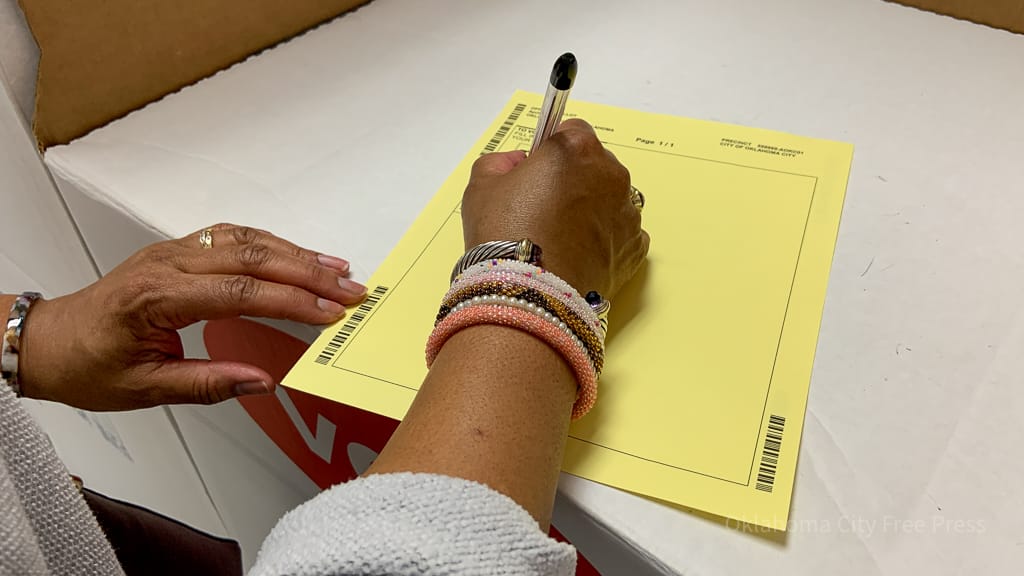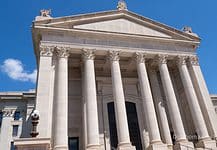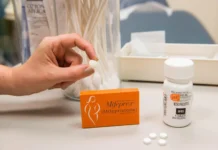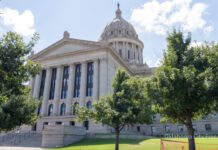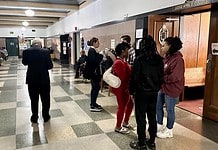Last Updated on March 23, 2024, 11:12 PM | Published: March 23, 2024
OKLAHOMA CITY – Oklahomans may get a chance to change the election process by ending closed primaries.
Oklahoma supporters of open primaries are working on an initiative petition to let voters decide whether a massive change is needed.
Margaret Kobos is CEO and founder of Oklahoma United, founded in 2021 to bring common sense solutions that engage the electorate and create better connections between government and the people.
“The version we find most popular is truly an open primary with a single primary ballot,” Kobos said.
- “All candidates would be on it.”
- Party identification would still be listed.
- The primary runoff would be eliminated.
- The top two vote-getters would advance to the general election.
“It puts the emphasis in an election on the candidates and the issues,” Kobos said. “It also makes the elected officials accountable to all voters, not just the voters in their own party.”
Kobos said it would increase voter participation, especially among young voters and voters who don’t think their vote counts.
The details of the initiative petition are still being worked out, she said. It hasn’t been determined if it will be a proposed statutory change or a constitutional amendment, Kobos said.
She estimated the cost to collect the necessary signatures to be $10 million to $12 million, based on the cost of the successful Medicaid expansion state question.
Democrats have opened their primaries to independents, while Republicans and Libertarians have not.
“It is wrong to force someone to pay for an election and not let them participate in it,” she said.
Oklahoma has a growing number of voters who registered as independent.
In January 2014, the figure was 238,870, which grew to 436,041 in 2024, according to the Oklahoma State Election Board.
Kobos said the current election structure was designed for a world in which we no longer live.
“Today, people expect to have choices and have the same choices everybody else has,” she said.
Ronda Vuillemont-Smith, chair of the Tulsa County Republican Party, is against open primaries.
Parties have the right to choose how they will pick their nominees, she said.
“We are not denying anyone the right to vote,” she said. “We are just saying you have to be a registered Republican to do so.”
Under the proposal, two Republicans and no Democrats could wind up on the general election ballot, she said.
But not all Republicans are against the idea.
Non-partisan primary already exists in Oklahoma City
Oklahoma City Mayor David Holt runs on a non-partisan ballot.
Holt, a Republican who formerly served in the Oklahoma Senate, said Oklahoma City’s open primaries force politicians to reach out to all sides to find solutions to move the city forward.
He believes the state’s closed primary system concentrates too much power in the hands of a minority at the expense of the majority of voters, resulting in extremism.
“Some of the people in elected office are crazy and some pretend to be crazy, but the outcomes seem to be the same,” Holt said.
A closed partisan primary leaves people out, Holt said.
“It forces the biggest decisions to be made in August in the runoff by the fewest number of people, and those people come from a very narrow perspective,” Holt said.
In 2022, Oklahoma Watch reported that nearly 70% of Oklahoma legislative races would be decided before the November general election.
Other states have adopted open primaries
The idea of open primaries in Oklahoma is far from new. Other states have adopted it.
In 2017, the Oklahoma Academy for State Goals, a nonprofit that deals with the major public policy issues facing the state, listed open primaries as their top policy recommendation, said Lynn Thompson, a spokesperson.
“Compared to our current party primary, runoff and general election schedule, the Top-Two system could potentially increase voter participation, reduce partisanship, and could also eliminate fringe special interest involvement in campaigns because candidates would be forced to respond to more moderate, general voters rather than play to the extremes of either party,” the 2017 report said.
John Opdycke is president of Open Primaries, which was formed in 2009.
He said the group wants to give independent voters more access and to address a growing concern that legislative bodies were ineffective and unable to craft creative and innovative legislation on issues of concern.
The partisan system incentivizes politicians to care more about the very small percent of the party base that votes in the primaries, he said.
“When you have a closed party primary system, candidates are forced to appeal to the most partisan, the most ideological members of their own party to win the nomination,” he said.
Republican political consultant Fount Holland said you have to be the conservative in the primary. But he points out that campaigns are very different from governing.
“You can be conservative in principle, but then you have to make it work (once elected),” Holland said, adding that he did not have a position on open primaries.
Republished in partnership with Oklahoma Voice under Creative Commons license CC BY-NC-ND 4.0. Oklahoma Voice is a part of States Newsroom which is a nonprofit news network supported by grants and a coalition of donors as a 501c(3) public charity. Oklahoma Voice maintains editorial independence. Contact Editor Janelle Stecklein for questions: [email protected]. Follow Oklahoma Voice on Facebook and Twitter.

Barbara Hoberock is a senior reporter with Oklahoma Voice. She has covered the statehouse since 1994 and served as Tulsa World Capitol Bureau chief. Hoberock covers statewide elected officials, the legislature, agencies, state issues, appellate courts and elections.
